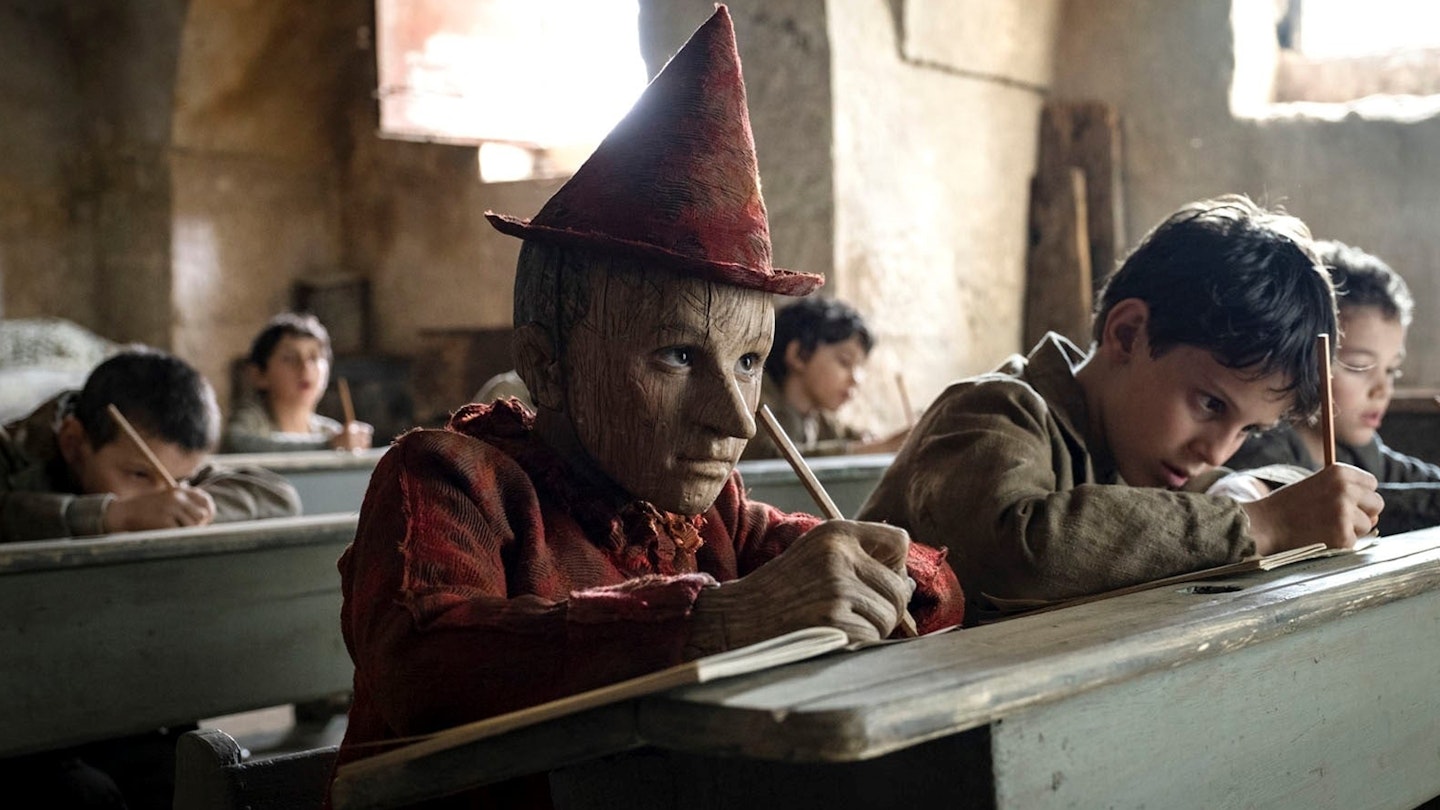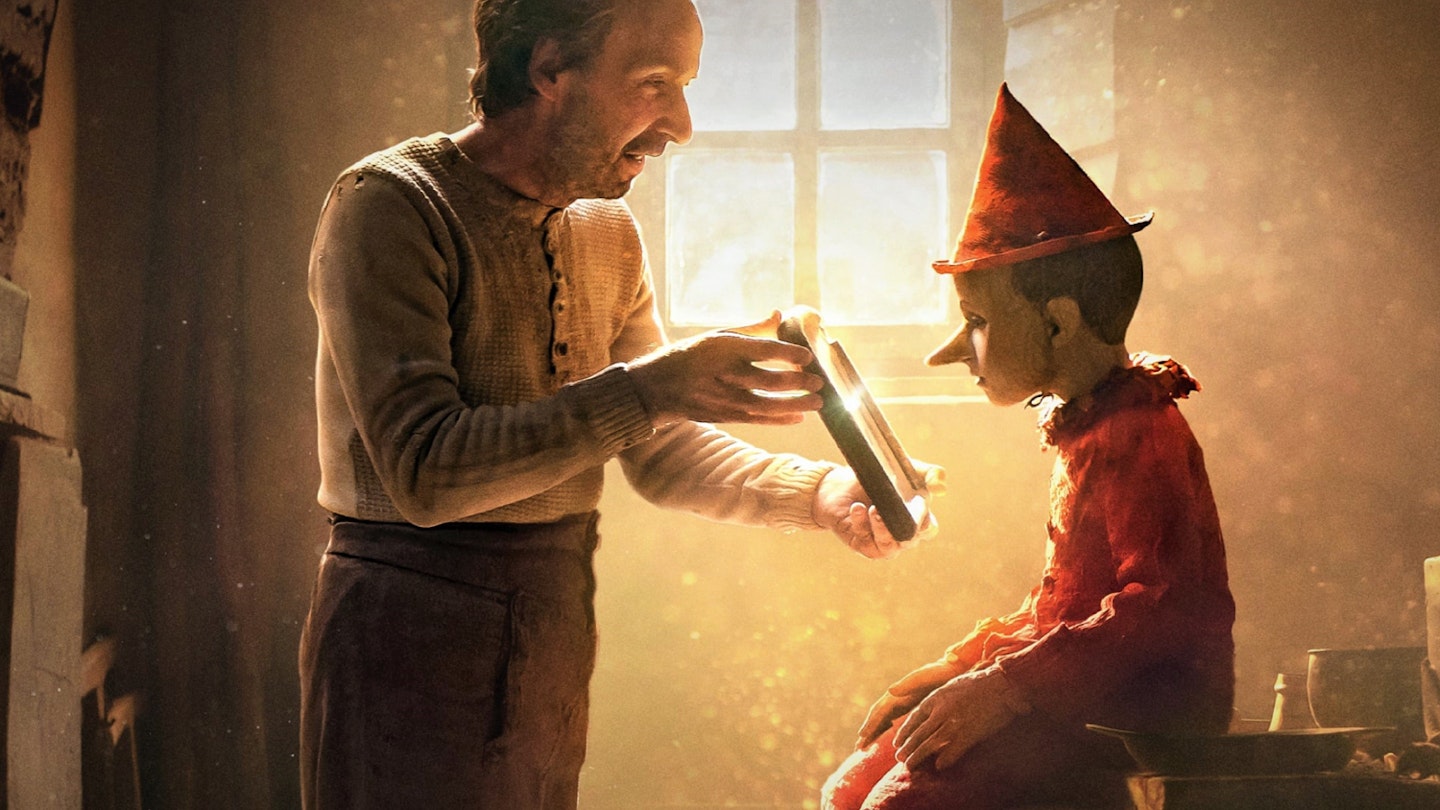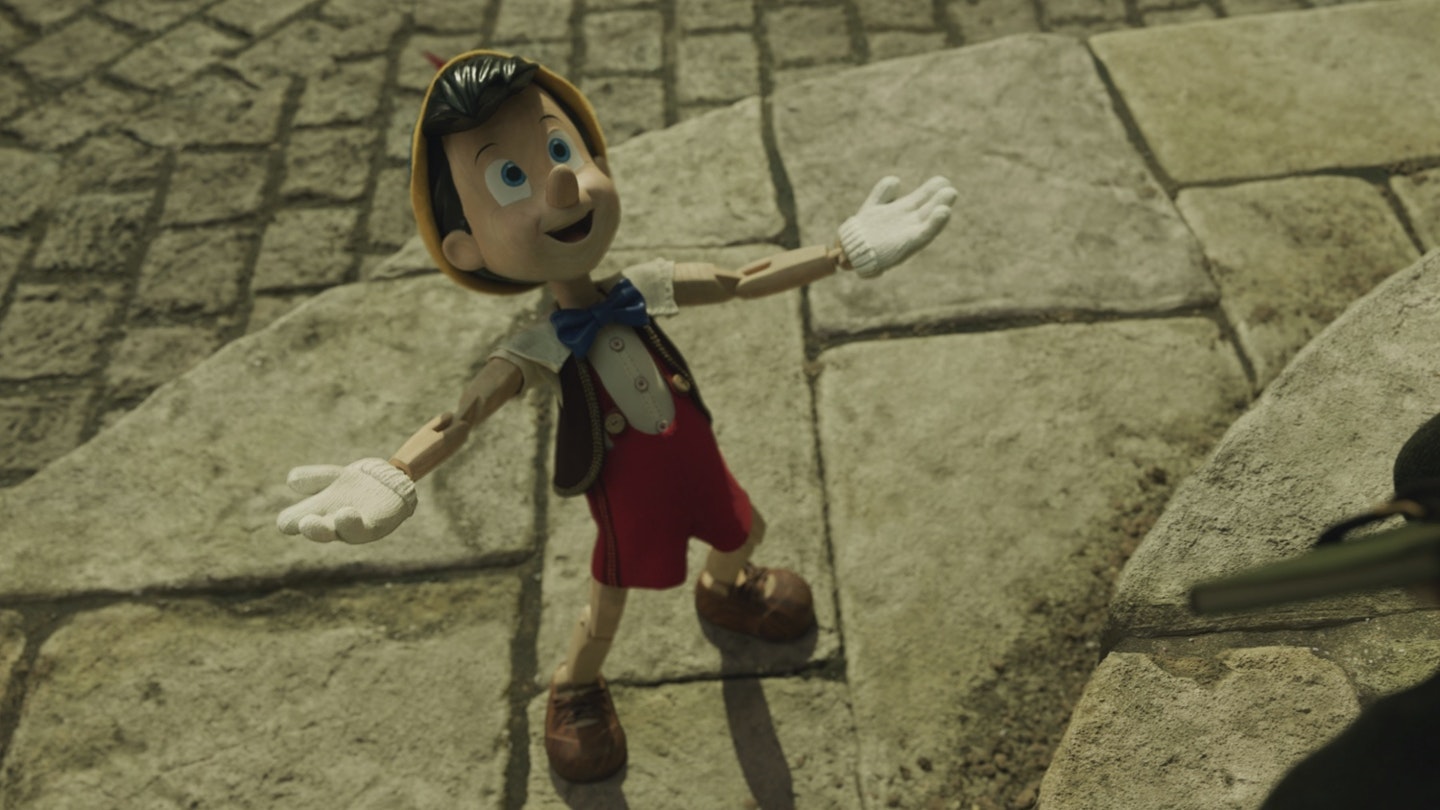Towards the end of Carlo Collodi’s 1883 children’s novel Pinocchio, a humongous dogfish swallows the wooden puppet. Since its publication, Pinocchio itself has been consuming people — specifically film directors. Countless movies have been made and countless haven’t — at any one time there is a high-profile director attached to a new one. Robert Zemeckis is currently on track to have a stab for Disney, while Guillermo del Toro has a stop-motion one coming to Netflix next year: “No single character in history has had as deep of a personal connection to me as Pinocchio,” del Toro has said. Pinocchio obsesses filmmakers like Moby Dick obsessed Ahab, often in unofficial capacities — it’s in the DNA of Tim Burton’s Edward Scissorhands, and in Stanley Kubrick and Steven Spielberg’s A.I. Artificial Intelligence. It is cinema’s own white whale.

Director Matteo Garrone is similarly stricken, having loved Pinocchio since he was a kid. The book is literary royalty in Italy — it’s in their bones there, and Garrone’s film, shot on home turf, by and with Italians, is as faithful as adaptations get. Collodi was a political satirist — his mischievous morality tale, set in an impoverished Tuscany and beyond, is peppered with dubious characters taking advantage of Pinocchio, exploiting goodwill, perverting justice. It’s not particularly odd that the director of 2008’s Mob drama Gomorrah should embrace it.
This is a playful, tender production. Garrone’s biggest spin is to put a little more emphasis on Geppetto, the puppet’s long-suffering creator, and here, emotion skews towards his desperate longing to hold on to his runaway son. Roberto Benigni has previous — also obsessed with Pinocchio, he directed his own version in 2002, casting himself as the boy, despite being 49. It was a curious decision that had potential — Benigni is a sprite, of sorts — but ultimately it proved to be a big bag of no, even if the film had its moments. As Geppetto, though, Benigni is perfect — a naive, ever-exuberant, hopelessly devoted father. He’s a delight.
Pinocchio looks incredible — so convincing you’d think it was CGI, but is in fact the work of British prosthetics master Mark Coulier
No role is wasted. Garrone has cast impeccably, the screen populated with incredible faces, unique, lived-in, weathered visages which tell their own stories. The fantastical ones are just as wonderful — the impatient gorilla judge, the maternal snail, the tired tuna fish. And then, Pinocchio himself (eight-year-old Federico Ielapi), a skittish, vibrant brat, his heart buried under his desire for immediate rewards. He looks incredible — so convincing you’d think it was CGI, but is in fact the work of British prosthetics master Mark Coulier, who turned Tilda Swinton into an old man on Luca Guadagnino’s Suspiria, and here makes Pinocchio look like he really is made of wood.
Inevitably, even though two hours is hardly a stretch, it feels a little long, as the source it sticks to is so defiantly episodic. This can be conquered if you take enough liberties — Disney’s classic animation was a joy, but the big narrative checkpoints aside, shared little in common with the book, certainly tonally, and was dealt with in 88 minutes. Collodi’s original was initially serialised in a children’s magazine, written in intermittent instalments, the puppet’s story literally strung together. Such structure doesn’t easily translate to cinema, and Garrone’s film suffers a little from the scenario-jumping, dramatically not amounting to quite as much as it might.
Yet an emotional backbone holds it together, paying off where it counts, its sincerity — and heart — never in question. It is so sweet, full of love, and utterly charming. It is released in two versions, with an English dub, and subtitled in its native Italian. Unless you’re a small child, do seek out the latter. The language is as pretty as the visuals.

